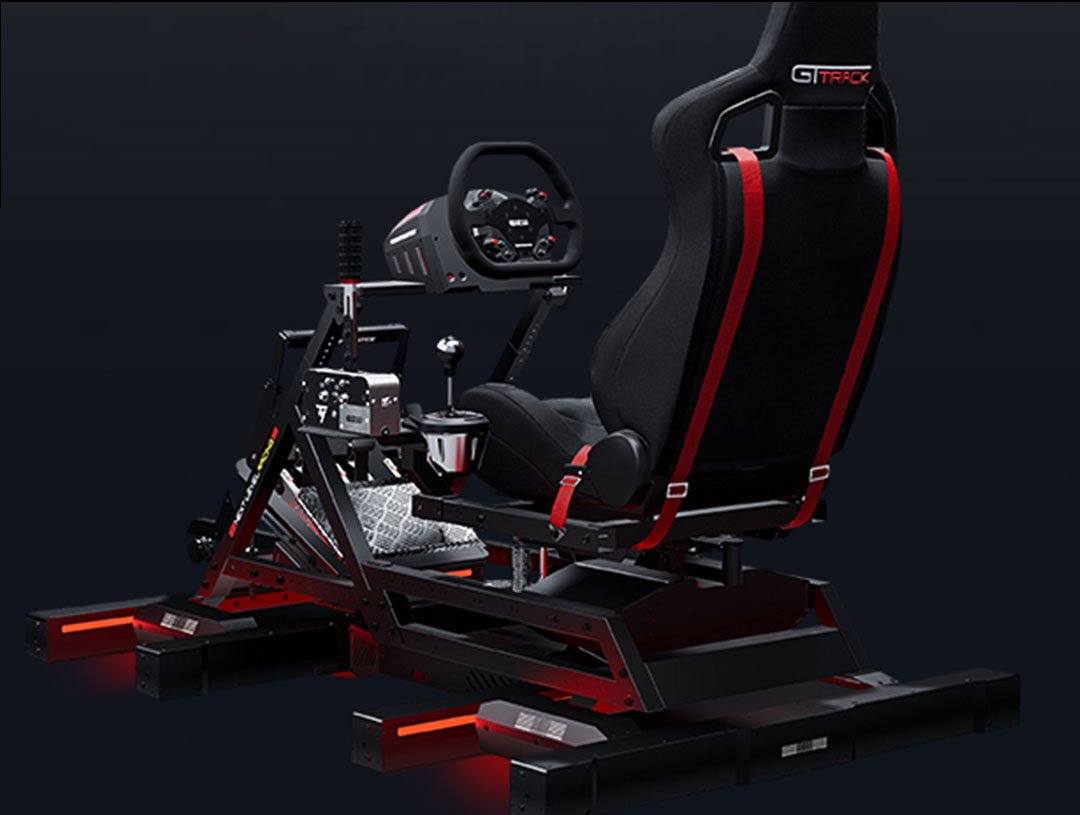Professional racing simulators are high-end setups used by racing teams, professional drivers, and racing enthusiasts who are serious about simulating real-world racing conditions. These simulators are typically found in professional training centers, racing academies, and sometimes even in the homes of professional drivers.
Features of professional racing simulators may include:
- High-Quality Hardware: They utilize top-of-the-line hardware components, including high-performance steering wheels, pedals, and force feedback systems, which closely replicate the feel and response of a real race car.
- Motion Systems: Some professional simulators incorporate motion platforms that can mimic the movements and vibrations experienced during actual racing, enhancing the immersion and realism of the simulation.
- Multiple Screens or VR: Professional setups often employ multiple large screens or virtual reality (VR) headsets to provide a wide field of view and a more immersive visual experience.
- Advanced Simulation Software: They utilize sophisticated racing simulation software that accurately models the physics of various race cars, tracks, and weather conditions, allowing for precise training and development of driving skills.
- Customization Options: Professional racing simulators are highly customizable to replicate specific race cars and their characteristics, making them ideal for professional drivers and teams who want to simulate specific race scenarios.
Here are some key benefits and applications of professional racing simulators:
- Driver Training and Skill Development: Professional racing simulators are invaluable tools for driver training and skill development. They provide a safe and controlled environment for drivers to practice various techniques, such as braking, cornering, and overtaking, without the risks associated with on-track training. Drivers can hone their skills, improve their lap times, and test different strategies in a realistic simulation of race conditions.
- Race Preparation and Strategy: Professional simulators allow drivers and teams to prepare for upcoming races by familiarizing themselves with the race tracks and analyzing the optimal racing lines, braking points, and gear shifts. They can also simulate different weather conditions, tire wear, and fuel consumption to develop effective race strategies and make informed decisions during actual races.
- Vehicle Development and Testing: Simulators play a crucial role in vehicle development and testing for racing teams and manufacturers. They can simulate the behavior and performance of different race cars, allowing engineers to fine-tune aerodynamics, suspension setups, and other vehicle parameters. This helps optimize the performance of the actual race car before it hits the track.
- Virtual Racing Competitions: Professional racing simulators are used in virtual racing competitions, such as e-sports events and sim racing championships. These competitions have gained significant popularity in recent years and offer a platform for professional drivers and sim racers to compete against each other in a virtual environment. Simulators provide a level playing field where drivers can showcase their skills and compete in realistic racing scenarios.
- Sponsorship and Marketing: Racing teams and drivers can utilize professional simulators as part of their sponsorship and marketing strategies. They can offer sponsors and partners the opportunity to experience the thrill of racing through simulator sessions, providing a unique and engaging brand exposure. Simulators also serve as a means to attract fans, generate social media content, and create interactive experiences during promotional events.

